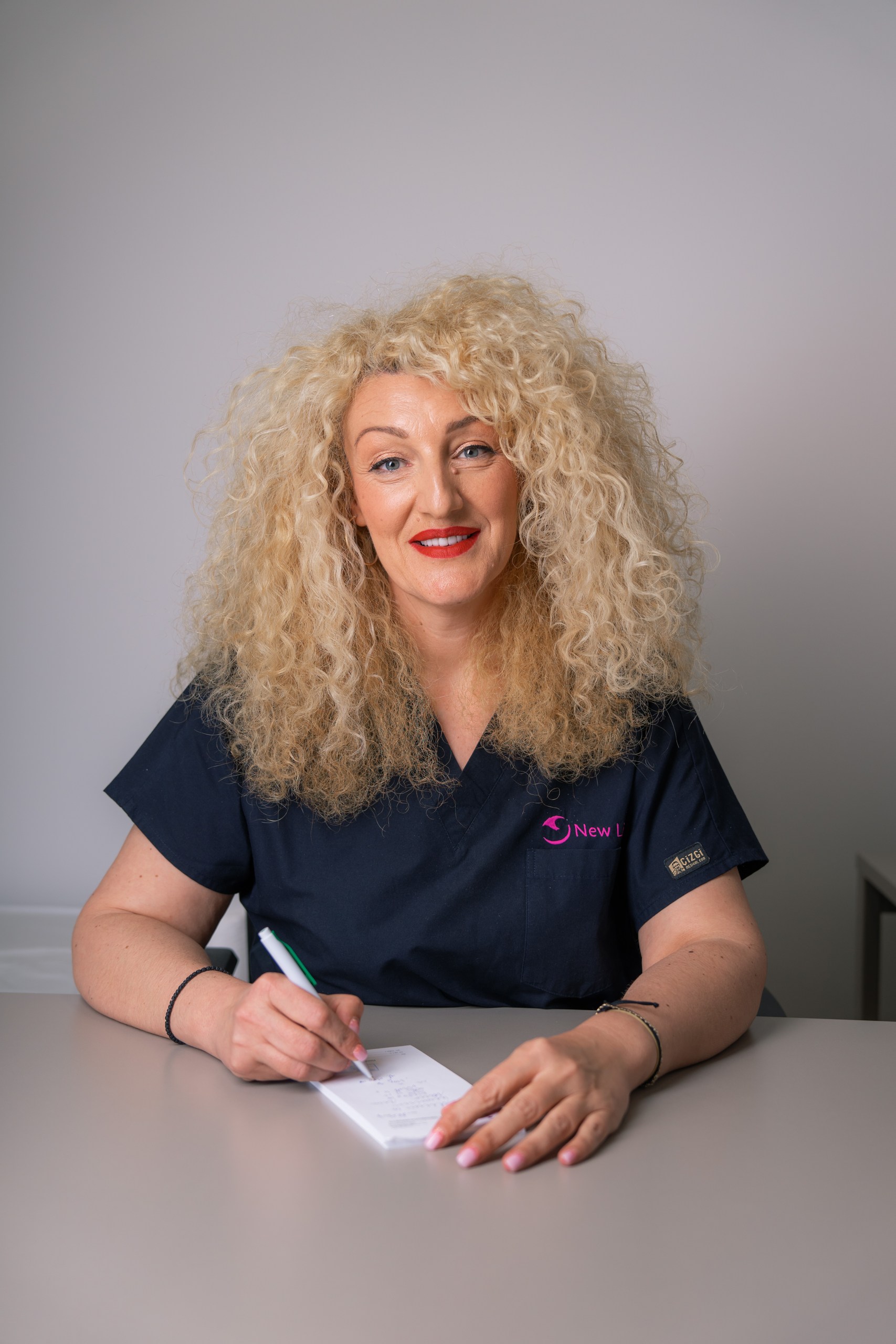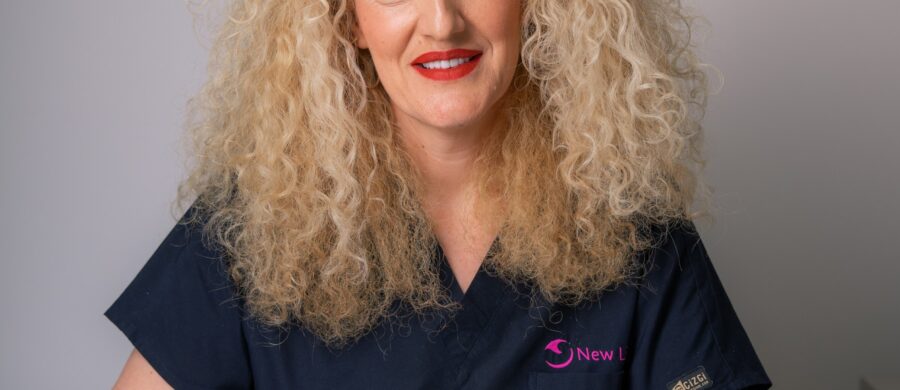Especially for the readers of «Doctor», Dr. Petrova explained the factors for achieving a successful pregnancy.
Dr. Petrova, when should a couple seek help from a reproductive medicine specialist?
When a couple has regular unprotected sex and the woman is young (up to the age of 36), but no spontaneous pregnancy occurs within a year and a half, then the couple should see a specialist in reproductive medicine without further delay. When a woman is over 36 years old with no pregnancies to date or younger than this age with a previous pregnancy in attempts for a second child, and no pregnancy has occurred within these six months, she should also see a specialist in reproductive medicine. I specify that a consultation does not mean in all cases to start an in vitro procedure. First, necessary diagnostic tests will be assigned to the couple, and only then will the chances of spontaneous pregnancy or the need for assisted reproduction be assessed.
I guess it’s not just the woman who goes to this examination?
Yes, it’s good to have both. But given the commitment of people, often the ladies arrive alone for the consultation. Of course, they carry all the medical documentation from the preliminary examinations and tests, including the man’s spermograms. In most cases, however, both of them arrive because they are both going to make a baby. There are also people who at this stage do not want a child, but wish to be responsible and know the status of their childbearing possibilities. In these cases, we recommend that the woman, on the third day of her period, have sex, thyroid hormones, and the most important – anti-Müllerian hormone, which are used to determine the ovarian reserve. The first recommendation for the man is to have a spermogram. The requirements before the examination itself are 3 to 5 days of sexual abstinence, no alcohol intake during these days and no antibiotic intake in the last month. These primary studies can give us direction in most cases why pregnancy does not occur.
Do you advise couples to change something in their lifestyle that prevents pregnancy?
In a conversation with the couple, it is established which are the lifestyle factors that prevent pregnancy. It strikes me that after sexual contact very often young women immediately go to the bathroom to wash themselves. And in fact, they have to lie down for a certain period of time. Fertility is also adversely affected by the excessive consumption of carbohydrates and the associated obesity. In reality, a very large percentage of young Bulgarians have this problem. Other factors in this category are the use of alcohol, smoking and drugs.
Do the drastic diets that most women undergo prevent pregnancy?
In Bulgaria, it is always fashionable to follow a diet, but not to learn to eat properly. It is very important that we, the doctors, explain to the woman that it is not good to starve for two weeks before the summer vacation in order to look good in a swimsuit. And he must learn to eat wholesomely. The most important meal is breakfast, because in the morning everyone’s insulin rises, which leads to brain hypoglycemia. However, the Bulgarian woman is used to starving or eating only salads in order to lose weight. With such a diet, the stomach is filled with water and minerals, but the brain is starved. Eating should be varied and balanced enough so that the brain does not make large margins between hyperglycemia and hypoglycemia, but maintains a glycemic plateau that will also regulate appetite during the day. If women learn to eat often, but little, for example four times a day, this guarantees good health and a nice figure. Do you research vitamin and mineral deficiencies in couples? Mandatory. In one consultation, in addition to sex hormone tests, a spermogram and a picture of the fallopian tubes, the levels of vitamin D3 and vitamin B12 are examined. They are extremely important vitamins not only for getting pregnant, but also for the proper development of the fetus during the first three months. In my clinical practice, I have found that women suffer massively from deficiencies of beneficial micronutrients because they do not eat well. There are foods that can be used to maintain normal levels of vitamins and minerals without taking supplements. But if they only eat patties and bosa or are starving, they feel full but haven’t had a full meal. It would be very good for them to learn to eat a slow carbohydrate in the morning. There is nothing wrong, in the tradition of Bulgarian culture, to eat stuffed peppers or sarmi, which contain rice, i.e. carbohydrates, for lunch. For an afternoon snack, it is good to eat a fruit or a few raw almonds. And for dinner, focus on light protein — fish or some meat with a salad. If you eat only salad, there is nothing wrong with adding two boiled eggs and olives. They will ensure completeness and balance of the dinner. It strikes me that in our country people do not drink the necessary amount of water.
When should you start assisted reproduction?
If a woman has bilateral tubal obstruction, her only way to get pregnant is through an in vitro procedure. If everything is fine with the woman — tubal patency, hormonal status, as well as the man’s spermogram is good, and both are young people, then insemination begins. By protocol, up to four are made. If even then pregnancy is not achieved, the case of sterility is treated with an unexplained factor and an in vitro procedure is carried out. The third option is when everything is fine in the woman, while in the man two of the four parameters of the spermogram are reduced. In this case, we have a male factor for sterility, and then we go back to the in vitro procedure.
What is an in vitro procedure nowadays?
The woman goes through hormonal stimulation with injections for about 12 days. These are hormones normal to the human body that the body produces anyway. After that, a puncture of the follicles is performed under complete venous anesthesia and ultrasound control. It is good to remove more than four eggs during the puncture. Follicular fluid is given to embryologists, where they look for cumulus complexes. The male secretes material into a cup, which is processed by embryologists. The most viable spermatozoa are selected and the egg cells are fertilized under a microscope, under high optical magnification. The injected eggs are placed in an incubator for several days. Between the third and fifth day after the puncture, the successfully fertilized and dividing egg (embryo) is placed in the woman’s uterine cavity. This is what we call embryo transfer, which is a painless manipulation. The last and most difficult stage is the 12-14 day wait for a blood test and, accordingly, whether pregnancy has been achieved. People need to understand that the human body is a whole and that every system and function is important in achieving pregnancy. It is important whether or not there is a vitamin deficiency, the genetics of the woman and the man, the gynecological status. Also the immunological status, how the metabolism works, what is the amount of fat in the body. With all this in mind and proper preparation done, we can expect success from the in vitro procedure. The procedure itself will not solve the problem if the future parents have not prepared their bodies. The human organism is a wonderful machine that works without fail and as long as we have been told when we have taken care of its health.










